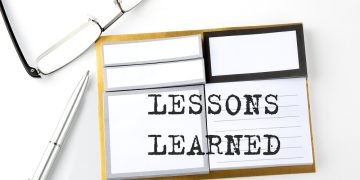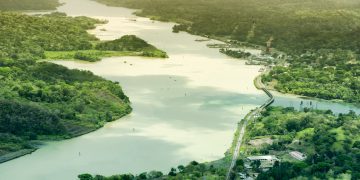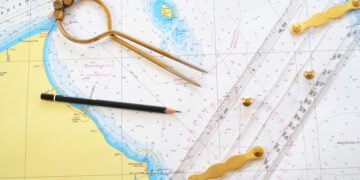The 4th SAFETY4SEA Manila Forum successfully took place on Thursday 3rd of April 2025, at the Sheraton Manila Hotel, Philippines, where experts gathered to share insights on maritime safety. Throughout the event’s discussions, it became clear that maritime safety is not optional but a fundamental necessity for advancing operations.
The event was organized by SAFETY4SEA having MacGregor, and SQE MARINE as the lead sponsors. More sponsors of the event included the following organizations: Arcadia Shipmanagement Co. LTD, Blue Planet Shipping Ltd, Capital-Executive Ship Management Corp., Capital Gas Ship Management Corp., Capital Shipmanagement, Döhle Seafront, Dorian LPG, Eastern Mediterranean Maritime Limited (EASTMED), Green Jakobsen A/S, I.M.A. Assessment & Training Center, Latsco Marine Management Inc., Magsaysay Maritime Corporation, IRI / The Marshall Islands Registry, OneCare Solutions, RISK4SEA, SEAFiT, and Sun Enterprises LTD.
Supporters of the event included: Filipino Association for Mariners’ Employment (FAME), Institute of Marine Engineering, Science and Technology, International Seafarers Welfare and Assistance Network (ISWAN) Philippines, Maritime Academy of Asia and the Pacific, MARINA, The Maritime League, The Nautical Institute, Philippine Association of Extension Program Implementers, Inc. (PAEPI), and Royal Institution Singapore.
Furthermore, FAS Maritime, HarborScope, Marino Ph, The Manila Times, and the United Filipino Seafarers acted as the events media sponsors.
Main issues discussed
- How digitalization and decarbonization impact human factor
- Regulatory update: Where we stand with STCW, MLC
- Enhancing human performance
- Crew challenges & alarming trends
- The role of leadership in seafarers’ overall wellbeing
- Digitalization, green transition and other factors impacting seafarers
- Pros and cons of pursuing a career at sea
- Current challenges for people at sea
- How to make seafaring attractive
- Best practices for future-ready maritime professionals
- Key trends & evolution of training
- Addressing the needs for future maritime workforce
Opening the event, Apo Belokas, Managing Editor of SAFETY4SEA, warmly welcomed attendees and speakers, expressing his gratitude to the event’s sponsors and supporters. He introduced the agenda, emphasizing the importance of active discussion and participation. Encouraging collaboration, he urged both attendees and the wider industry to engage in meaningful dialogue on advancing maritime safety and crew welfare, working together to shape a brighter future for shipping.
 Opening keynote address session
Opening keynote address session
Presca Lee B. Lugo, Maritime Education and Training Standard Supervisor, STCW Office, Maritime Industry Authority (MARINA), delivered the opening keynote address on the future of Philippine maritime education and training. She discussed the implementation of Republic Act No. 12021, known as the Magna Carta of Filipino Seafarers, and the country’s active participation in the comprehensive review of the STCW Convention and Code. Presca Lee B. Lugo also highlighted ongoing digitalization and sustainability initiatives, emphasizing the Philippines’ commitment to enhancing crew welfare and fostering a strong safety culture in the maritime industry.
Marlon R. Roño, President, Magsaysay People Resources Corporation & Executive Chairman, Magsaysay Maritime Corporation, delivered an insightful presentation on the future of the crew management industry in the Philippines. He explored the evolving landscape of seafarer training and career opportunities, emphasizing the need for continuous skill development to meet the demands of the global maritime sector. Marlon R. Roño also addressed the challenges surrounding crew welfare, highlighting the importance of mental wellness, diversity, inclusivity, and career growth. He underscored the industry’s responsibility to implement initiatives that support seafarers’ well-being while fostering a more sustainable and resilient workforce.
Session #1 – Seafarer Performance and Human Factors: A path to excellence
Atty. Iris Baguilat, President, Döhle Seafront Crewing (Manila), Inc., discussed the crucial role of seafarer performance and human factors in ensuring safer shipping. She highlighted key determining factors, including advancements in technology, enhanced technical training, stricter safety regulations, and a greater emphasis on crew welfare. Atty. Iris Baguilat also underscored the growing importance of soft skills, which complement technical expertise in fostering a more resilient and efficient maritime workforce.
Capt. Allan Raymund Olano, General Manager, Philippines, Green Jakobsen, explored Performance Influencing Factors (PIFs) and their impact on improving maritime operations. He emphasized that while vessel operators focus on numerical results and statistics, improving performance requires a process-oriented mindset. Capt. Allan Raymund Olano highlighted the importance of alignment, ensuring individual goals contribute to team and organizational objectives. He stressed that organizations must remain flexible to industry changes by fostering a resilient and high-performing workforce.
 Capt. Fanis Chatzikampouris, Vetting Manager & CSO, HSQE & Crew Dept Overseer, Arcadia Shipmanagement Co Ltd, discussed the role of the human factor in meeting regulatory requirements within the shipping industry. He examined key regulations, including the Maritime Labour Convention (MLC), the STCW Convention, OCIMF SIRE 2.0, and RightShip inspections, highlighting their impact on operational standards and compliance. Capt. Sundeep R. Chatzikampouris also emphasized the importance of crew welfare, underlining that regulatory frameworks should not only ensure safety and efficiency but also enhance the well-being of seafarers.
Capt. Fanis Chatzikampouris, Vetting Manager & CSO, HSQE & Crew Dept Overseer, Arcadia Shipmanagement Co Ltd, discussed the role of the human factor in meeting regulatory requirements within the shipping industry. He examined key regulations, including the Maritime Labour Convention (MLC), the STCW Convention, OCIMF SIRE 2.0, and RightShip inspections, highlighting their impact on operational standards and compliance. Capt. Sundeep R. Chatzikampouris also emphasized the importance of crew welfare, underlining that regulatory frameworks should not only ensure safety and efficiency but also enhance the well-being of seafarers.
Session #2 Thriving at sea: Strategies for crew wellness and resilience
Capt. Sundeep R. Sequeira, Head of Business Development & Commercial Strategy, OneCare Group, gave a presentation on the importance of fostering crew well-being through proactive measures. He pointed out how a forward-thinking approach can significantly enhance the mental and physical health of seafarers, ultimately improving performance and safety at sea. Capt. Sundeep R. Sequeira also addressed strategies for adapting to emerging challenges in maritime workplaces, laying emphasis on the need for continuous support systems, wellness programs, and a culture that prioritizes crew welfare in an evolving industry.
 Dr. Monique Mendoza, Cebu Branch & Telemedicine Manager, Nordic Medical Clinic, drew attention to the importance of holistic wellness and building resilience in the maritime industry. She highlighted that resilience is not merely a reactive response to challenges but can be developed proactively through proper preparation and support systems Monique Mendoza underscored the need for comprehensive well-being initiatives that help ensure seafarers are better equipped to handle the demands of their profession.
Dr. Monique Mendoza, Cebu Branch & Telemedicine Manager, Nordic Medical Clinic, drew attention to the importance of holistic wellness and building resilience in the maritime industry. She highlighted that resilience is not merely a reactive response to challenges but can be developed proactively through proper preparation and support systems Monique Mendoza underscored the need for comprehensive well-being initiatives that help ensure seafarers are better equipped to handle the demands of their profession.
Marville Cullen Espago, Country Manager (Philippines), International Seafarers’ Welfare and Assistance Network (ISWAN), highlighted the growing emotional toll on seafarers due to family stress. As explained, ISWAN’s data shows a rise in seafarers seeking support for personal issues, particularly relationship problems and concerns about family health. High-speed internet on board, while keeping seafarers connected, also exposes them to family difficulties in real-time, creating a sense of helplessness. As a result, he emphasized the need for mental health support that considers both life at home and on board, urging the normalization of conversations around mental health and creating safe spaces for seafarers to seek help.
Focus Presentation: From Safety Performance to Human Capital ROI
Apo Belokas, Managing Editor of SAFETY4SEA, delivered a focus presentation on the return on investment (ROI) in human capital and its critical role in advancing maritime operations. Apo Belokas challenged traditional perspectives, arguing that seafarers should be viewed as valuable assets rather than costs, especially in an era where recruiting and retaining seafarers is quite challenging. He highlighted that investing in human capital not only enhances crew welfare and performance but also leads to measurable safety improvements and long-term operational benefits. By shifting the focus toward structured training and professional development, he underscored that prioritizing people is both a strategic and essential investment for the future of the industry.
Session #3 Seafarers’ voice: Experiences and challenges
During the third panel discussion, seafarers shared their personal experiences, shedding light on the challenges currently faced by the maritime industry, especially those related to personnel onboard ships. They offered a deep dive into the realities of life at sea, provided career advice, and emphasized what makes the maritime sector an appealing career path for younger individuals. The conversation also touched on strategies to enhance crew welfare and pinpointed key issues that require attention to improve onboard conditions. SAFETY4SEA is grateful to the following seafarers who participated and shared their experiences: Eleniña Paz Adriano, Third Mate, Dorian LPG Management; Denver Agsalda, Second Engineer, Intership Navigation/ United Bulk Carriers; Jack Carandang, Third Officer, Döhle Seafront Crewing (Manila), Inc.; Shaina Moriones, Third Officer, Magsaysay; Mark Joseph Paglinawan, Chief Engineer, Döhle Seafront Crewing (Manila), Inc.;
Session Panel #4 Future- ready seafarers: Soft skills and training priorities
Capt. Nicolo Terrei, Director, I.M.A. Assessment and Training Center, focused on the crucial role of soft skills in the future of shipping. He highlighted the existing gap between current maritime training curricula and the evolving demands at sea, especially in light of technological advancements and new environmental regulations. Capt. Terrei pointed out that soft skills are often overlooked in training programs, yet they are essential for the effective operation of modern vessels. He called for greater alignment among training providers, shipping companies, and regulators to bridge this gap.
Leo M. Bolivar, Country Manager, International Registries (Far East) Limited, highlighted the critical role of soft skills in enhancing the human element in maritime operations. He emphasized that developing core soft skills is essential for competency in the evolving shipping industry. Bolivar discussed key aspects such as Crew Resource Management (CRM) for optimizing operational efficiency, training programs focused on mental health and well-being, and management systems designed to support crews while reducing administrative burdens.
 Dr. Angelica Baylon, External Relations Director, Maritime Academy of Asia and the Pacific (MAAP), delivered a presentation on the importance of soft skills in maritime education and training. She stressed that maritime educators, industry leaders, and mentors must equip future professionals with both technical expertise and essential soft skills. Dr. Angelica Baylon advocated that maritime schools should focus on developing well-rounded leaders who possess the ability to adapt, communicate, and collaborate effectively. Prioritizing soft skills, she argued, will ensure that the maritime industry remains resilient, innovative, and ready for the challenges of the future.
Dr. Angelica Baylon, External Relations Director, Maritime Academy of Asia and the Pacific (MAAP), delivered a presentation on the importance of soft skills in maritime education and training. She stressed that maritime educators, industry leaders, and mentors must equip future professionals with both technical expertise and essential soft skills. Dr. Angelica Baylon advocated that maritime schools should focus on developing well-rounded leaders who possess the ability to adapt, communicate, and collaborate effectively. Prioritizing soft skills, she argued, will ensure that the maritime industry remains resilient, innovative, and ready for the challenges of the future.
Giovanni Tuapin, President, Intership Crew Philippines, explored the growing need for a shift in seafarer training within the maritime industry. He argued that while technical skills remain critical, the development of strong soft skills is becoming increasingly essential for safe, efficient, and sustainable maritime operations. The presenter emphasized the importance of fostering a culture of ongoing improvement and proactive leadership. Moving beyond traditional compliance-based training, it focused on questioning established practices, adopting adaptive leadership, encouraging collaborative innovation, and developing a culture of continuous improvement.
Pol Winston G. Haboc, Head, Philippine Center for Advanced Maritime Simulation and Training, Inc., emphasized that maritime safety is not a matter of competition but of collaboration, as the well-being of crew members and the efficient operation of vessels benefit the entire industry. He also stressed the importance of preparing seafarers for the future by providing opportunities for skill development, ensuring they are well-equipped to navigate regulatory and technological advancements in their field.




































































thank you for being part of this Forum.Hoping more Forum and more seafarers will be participated..